Search
Search Results

Definition
Set (Egyptian God)
Set, also known as Seth and Suetekh, was the Egyptian god of war, chaos, and storms, brother of Osiris, Isis, and Horus the Elder, uncle to Horus the Younger, and brother-husband to Nephthys. His other consort was the goddess Tawaret, a hippo-headed...
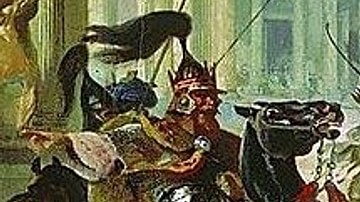
Definition
Vandals
The Vandals were a Germanic tribe who are first mentioned in Roman history in the Natural History of Pliny the Elder (77 CE). The Roman historian Tacitus also mentions them in his Germania (c. 98 CE), though he also refers to them as the...
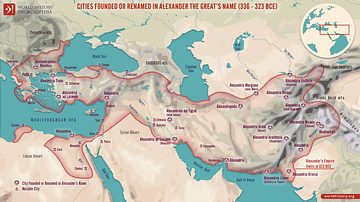
Article
Cultural Links between India & the Greco-Roman World
Cyrus the Great (558-530 BCE) built the first universal empire, stretching from Greece to the Indus River. This was the famous Achaemenid Empire of Persia. An inscription at Naqsh-i-Rustam, the tomb of his able successor Darius I (521-486...
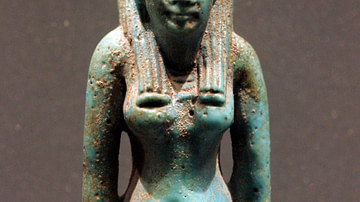
Definition
Nephthys
Nephthys was one of the original five gods of ancient Egypt born of the union of Geb (earth) and Nut (sky) after the creation of the world. She was the fourth born after Osiris, Isis, and Set and was the older sister of Horus (usually referred...
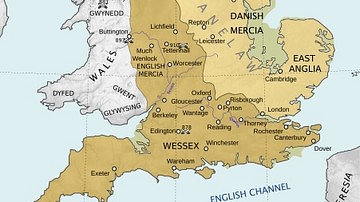
Definition
Kingdom of Wessex
The Kingdom of Wessex (c. 519-927 CE or c. 519-1066 CE) was a political entity founded by the West Saxon Chieftain Cerdic (r. 519-540 CE) in 519 CE in the Upper Thames Valley of modern-day Britain which would later evolve into the modern...
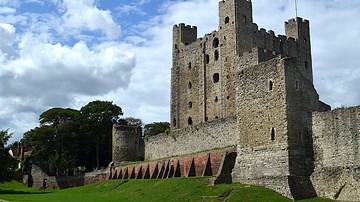
Definition
Rochester Castle
Rochester Castle, located in Kent, England, was first constructed shortly after 1066 CE by the Normans, was converted into stone between 1087 and 1089 CE, and then added to over subsequent centuries, notably between 1127 and 1136 CE, and...

Definition
King David
According to biblical tradition (and some say myth), David (c. 1035-970 BCE) was the second king in the ancient United Kingdom of Israel who helped establish the eternal throne of God. A former shepherd, David was renowned for his passion...
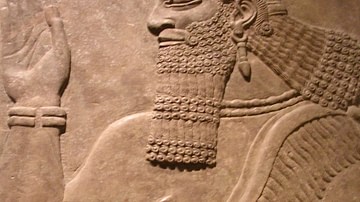
Definition
Neo-Assyrian Empire
The Neo-Assyrian Empire (912-612 BCE) was the final stage of the Assyrian Empire, stretching throughout Mesopotamia, the Levant, Egypt, Anatolia, and into parts of Persia and Arabia. Beginning with the reign of Adad Nirari II (912-891 BCE...

Definition
New Kingdom of Egypt
The New Kingdom (c. 1570- c.1069 BCE) is the era in Egyptian history following the disunity of the Second Intermediate Period (c. 1782-1570 BCE) and preceding the dissolution of the central government at the start of the Third Intermediate...
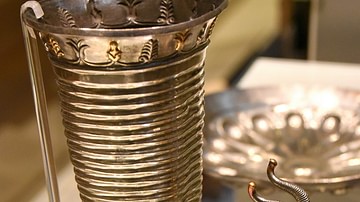
Definition
Ancient Persian Art and Architecture
Persian art and architecture in the present day is associated with the nation of Iran and usually designated as beginning with the Achaemenid Empire (c. 550-330 BCE) but has an even longer history with its origins dating back to before the...